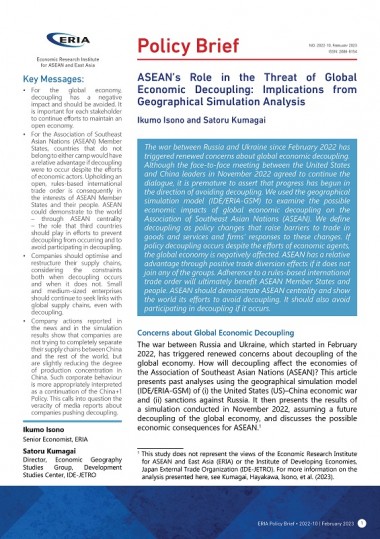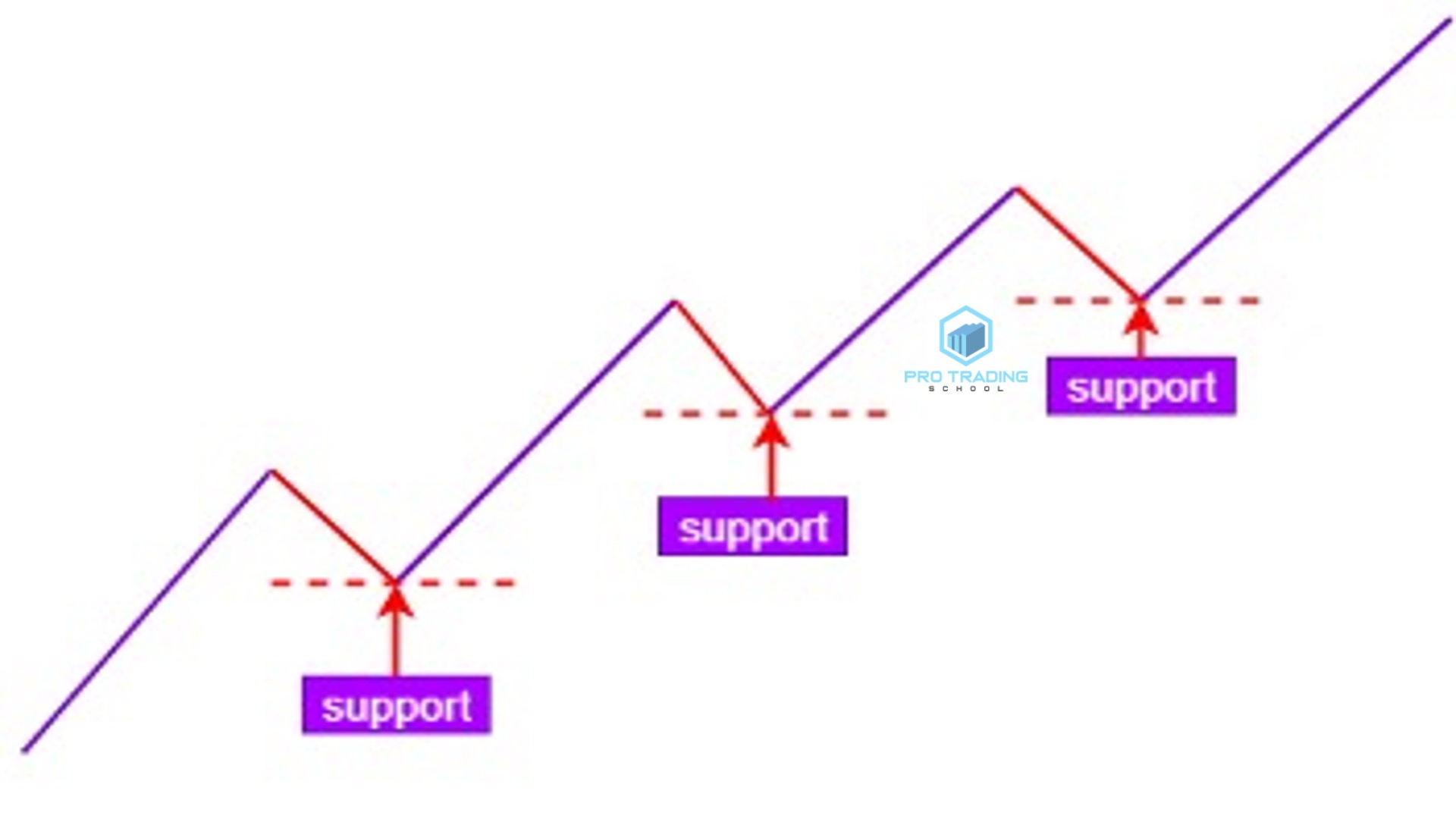The Great Decoupling: Implications For Global Economies

Table of Contents
Driving Forces Behind the Great Decoupling
Several interconnected factors are driving the Great Decoupling and reshaping global economic interdependence.
Geopolitical Tensions and Rising Protectionism
Increased trade disputes and tariffs are a major catalyst. The US-China trade war, for example, highlighted the fragility of global supply chains and spurred nations to consider alternative trading partners. This is further fueled by:
- Increased nationalism: A rise in protectionist policies and a retreat from multilateral agreements like the World Trade Organization (WTO).
- Sanctions and political instability: Geopolitical instability in various regions disrupts trade flows and creates uncertainty for businesses.
- Examples: Brexit significantly altered the UK's relationship with the EU, while ongoing tensions in Eastern Europe continue to impact global trade. Regional trade conflicts also contribute to the overall trend.
Technological Competition and Diversification
Technological competition, particularly between the US and China, is another key driver. Nations are prioritizing domestic technological development to reduce reliance on foreign technologies, leading to:
- Rise of domestic champions: Governments are actively supporting and fostering the growth of their own technology companies.
- National security concerns: Concerns over technological dependence and the potential for espionage have prompted governments to invest in domestic technology sectors.
- Supply chain diversification: Countries are actively seeking to diversify their supply chains to reduce vulnerabilities.
- Examples: The rivalry in the semiconductor industry, the development of 5G networks, and the competition in artificial intelligence (AI) all contribute to this decoupling.
Pandemic-Induced Supply Chain Disruptions
The COVID-19 pandemic exposed the fragility of globally integrated supply chains. The resulting disruptions led to:
- Reshoring and nearshoring: Companies are relocating production closer to their home markets to reduce reliance on distant suppliers and improve resilience.
- Increased investment in domestic manufacturing: Governments are incentivizing domestic manufacturing to enhance national self-sufficiency.
- Focus on logistics: Investments are increasing in logistics and infrastructure to ensure efficient domestic supply chains.
- Examples: The global semiconductor shortage and disruptions in pharmaceutical supply chains highlighted the risks of over-reliance on single sourcing and geographically concentrated production.
Sectors Most Affected by the Great Decoupling
The Great Decoupling is significantly impacting several key economic sectors:
Technology and Manufacturing
This sector is at the forefront of the decoupling. The intense competition for technological dominance is leading to:
- Shifting manufacturing hubs: Manufacturing is relocating from traditional hubs to new locations, influenced by geopolitical factors and cost considerations.
- Increased R&D investment: Countries are investing heavily in research and development to maintain technological competitiveness.
- Focus on specific technologies: Investment and competition are concentrated on key technologies like semiconductors, AI, and 5G.
Energy and Resources
Energy security concerns and the competition for critical minerals are reshaping global energy markets:
- Energy diversification: Countries are diversifying their energy sources to reduce dependence on specific suppliers.
- Competition for critical minerals: The demand for minerals needed for renewable energy and advanced technologies is driving competition and potential resource conflicts.
- Impact on commodity prices: The shifting geopolitical landscape is impacting the prices of key commodities.
Finance and Investment
Financial markets are also experiencing a degree of decoupling:
- Shifting investment flows: Investment patterns are changing as countries prioritize domestic investments and seek to reduce reliance on foreign capital.
- Increased regionalization: Financial markets are becoming more regionalized, with less integration between major economic blocs.
- Impact on global capital allocation: The decoupling impacts the efficiency and effectiveness of global capital allocation and economic growth.
Potential Consequences and Future Outlook
The Great Decoupling has significant potential consequences:
Economic Fragmentation and Slower Growth
The fragmentation of global supply chains can lead to:
- Reduced efficiency: Longer and more complex supply chains can lead to higher costs and reduced efficiency.
- Lower trade and investment: Reduced interconnectedness can lead to lower levels of trade and investment.
- Slower economic growth: The overall impact can result in slower global economic growth.
Increased Geopolitical Instability
The decoupling could exacerbate existing geopolitical tensions:
- Heightened tensions: Competition for resources, markets, and technology can lead to increased tensions between nations.
- Increased risk of conflict: The possibility of trade wars and other forms of economic conflict increases.
- Regional instability: The decoupling can contribute to regional instability and conflicts.
Opportunities for Regional Cooperation and Innovation
Despite the challenges, the Great Decoupling presents opportunities:
- Regional economic integration: The decoupling might encourage stronger regional economic integration and cooperation.
- Innovation and development: It could spur innovation and the development of new technologies and industries.
- More resilient economies: The focus on diversifying supply chains and building more robust domestic economies could create more resilient systems.
Conclusion
The Great Decoupling presents both significant challenges and opportunities for global economies. While the fragmentation of global supply chains and increased geopolitical tensions pose considerable risks, it also creates room for regional cooperation, innovation, and the development of more resilient economic systems. Understanding the driving forces and potential consequences of this profound shift is crucial for navigating the complex landscape of the future global economy. To remain competitive and thrive in this evolving environment, businesses and policymakers need to actively monitor and adapt to the evolving dynamics of the Great Decoupling and develop strategies for navigating this new era of global economic relations. Further research and analysis of the Great Decoupling are essential for informing effective policy decisions and business strategies. Understanding and adapting to the implications of the Great Decoupling is critical for success in the evolving global marketplace.

Featured Posts
-
 Bitcoin Surge Positive Trade Talks Boost Crypto Market
May 08, 2025
Bitcoin Surge Positive Trade Talks Boost Crypto Market
May 08, 2025 -
 Senator Fetterman Addresses Fitness For Office Concerns
May 08, 2025
Senator Fetterman Addresses Fitness For Office Concerns
May 08, 2025 -
 Xrp Technical Analysis 2 Support Reversal Signal Or False Breakout
May 08, 2025
Xrp Technical Analysis 2 Support Reversal Signal Or False Breakout
May 08, 2025 -
 Investigation Reveals Lingering Toxic Chemicals In Buildings Months After Ohio Train Derailment
May 08, 2025
Investigation Reveals Lingering Toxic Chemicals In Buildings Months After Ohio Train Derailment
May 08, 2025 -
 Made In Gujranwala Exhibition A Success Story Highlighted By Sufians Praise For Gcci President
May 08, 2025
Made In Gujranwala Exhibition A Success Story Highlighted By Sufians Praise For Gcci President
May 08, 2025
Latest Posts
-
 Jayson Tatums Bone Bruise Latest Updates And Game 2 Outlook
May 09, 2025
Jayson Tatums Bone Bruise Latest Updates And Game 2 Outlook
May 09, 2025 -
 Boston Celtics Nba Finals Merchandise Shop Now At Fanatics
May 09, 2025
Boston Celtics Nba Finals Merchandise Shop Now At Fanatics
May 09, 2025 -
 Jayson Tatums Bone Bruise Game 2 Status Uncertain
May 09, 2025
Jayson Tatums Bone Bruise Game 2 Status Uncertain
May 09, 2025 -
 Support The Celtics Find Official Gear At Fanatics
May 09, 2025
Support The Celtics Find Official Gear At Fanatics
May 09, 2025 -
 Fanatics Offers The Best Selection Of Boston Celtics Apparel And Merchandise
May 09, 2025
Fanatics Offers The Best Selection Of Boston Celtics Apparel And Merchandise
May 09, 2025
